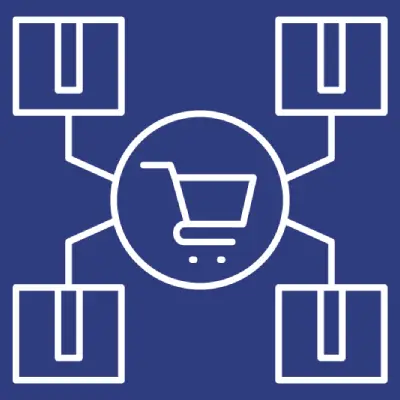Every course creator goes through these three essential phases to sell an online e-learning course:
- Course Creation
- Publishing
- Marketing
While you may have completed the first step, the remaining two—publishing and marketing—can often feel overwhelming.
This is where third-party platforms like Coursera and Udemy come in, offering valuable solutions.
Coursera and Udemy allow you to publish your course on their platforms, taking care of the marketing for you with their vast resources.
But what’s the catch?
In exchange, they take a significant cut—up to 60% of your profits!
That sounds daunting, doesn’t it?
It can feel frustrating to part with more than half of your hard-earned profit when there’s a way to keep it all.
So, what’s holding you back?
As a technical content writer who has answered countless queries, I understand what might be stopping you. It’s not uncommon to feel like you’re experiencing déjà vu when searching for alternatives to Coursera or Udemy.
And that’s why you’re reading this guide.
Here, we’ll explore the best alternatives to Coursera and Udemy so you can retain all of your profits by selling your e-learning course through your own website using a Learning Management System (LMS). But before we dive into the alternatives, let’s review what Coursera and Udemy offer, along with their potential drawbacks.
What Are Coursera & Udemy?
Coursera and Udemy are among the most popular third-party platforms promoting e-learning.
These platforms have revolutionized the industry by offering a convenient solution for course creators, minimizing the effort required to sell online courses. By simply publishing your course, you can leave the marketing up to them.
While this might seem like an attractive option, it’s not always the best choice. Here’s why.
Drawbacks of Coursera & Udemy
Imagine you’ve just created your course and are exploring different platforms to publish it. The sheer number of choices can be overwhelming, and identifying the drawbacks of each platform may seem impossible.
No need to worry—I’ve outlined the key reasons you might want to avoid using Coursera or Udemy to sell your e-learning course.
Crowded Platforms
One of the main challenges of using Coursera or Udemy is the crowded market. With so many competing courses, especially those priced lower than yours, it becomes harder to stand out. You may find yourself lost in a sea of similar offerings.
High Commission Rates
While these platforms may simplify the selling process by handling marketing and subscription services, they come at a steep cost. With Udemy taking up to 60% of your profit and Coursera up to 40%, this significantly reduces your earnings. This is a high price to pay, especially when you could avoid it with some knowledge of selling online courses independently.
Lower Price Caps
One frustrating aspect of using these platforms is the price cap on courses. For example, even if your course offers high value, Udemy enforces a price limit of $199.99, restricting your potential earnings and limiting the growth of your online course.
Barriers to Entry
While Udemy allows most instructors to publish their courses easily, Coursera imposes stricter requirements. Only instructors affiliated with their partner institutions can offer courses, making it more challenging to get started.
What To Choose If Not Udemy or Coursera?
If Coursera and Udemy don’t seem like the right fit, you might be wondering: what’s the best alternative for selling your online course?
The answer lies in creating your own Learning Management System (LMS). An LMS is a software platform that allows you to host, manage, and sell your e-learning courses directly from your website, giving you complete control over your content, pricing, and marketing.
Here’s why an LMS is a superior choice:
Full Control Over Your Content
With your own LMS, you’re the one in charge. Unlike Coursera and Udemy, you won’t be restricted by content guidelines or forced to follow their pricing strategies. You can design your course exactly how you want and offer it at a price that reflects its true value.
Keep 100% of Your Profits
One of the most appealing benefits of using an LMS is that there are no high commission rates. Unlike third-party platforms that take up to 60% of your revenue, an LMS allows you to keep 100% of your earnings. Sure, there may be some initial setup costs, but these pale in comparison to the ongoing fees you would pay to Coursera or Udemy.
Custom Branding and User Experience
An LMS lets you fully customize your platform, allowing you to reflect your personal brand and create a seamless experience for your users. From design to functionality, you can tailor every aspect of the learning environment to match your vision and provide a professional, branded experience for your students.
Flexible Payment and Pricing Options
With your own LMS, you can set flexible pricing structures for your courses. Whether you want to offer one-time payments, subscription models, or installment plans, the choice is yours. You can also run promotions and discounts, giving you the freedom to grow your audience in the way that works best for your business.
Access to Student Data
Unlike Udemy and Coursera, where you have limited access to your students’ data, an LMS gives you full control over your student list and their behavior. This allows you to engage with your audience directly, improve your courses based on real feedback, and even upsell new offerings.
Marketing on Your Own Terms
When you use your own LMS, you’re not dependent on a platform to do your marketing. You can leverage your own strategies—such as SEO, email marketing, social media, and paid ads—to reach your target audience and grow your course sales.
Top LMS Platforms to Consider
If you’re ready to move beyond third-party platforms like Udemy and Coursera, there are several excellent LMS options to consider. These platforms allow you to create, manage, and sell your courses directly from your own website. Below, we’ll explore some of the best LMS platforms available, breaking down their key features so you can make an informed decision.
Teachable
Teachable is an incredibly user-friendly platform designed to make course creation and sales easy. Whether you’re a beginner or an experienced course creator, Teachable provides intuitive tools to help you launch and manage your online courses.
Key Features:
- Drag-and-drop course builder for ease of use
- Customizable sales pages with built-in SEO tools
- Built-in payment processing with support for multiple currencies
- Comprehensive analytics to track course performance
- Option to offer quizzes, certificates, and feedback forms
Thinkific
Thinkific provides robust customization options for both your course content and marketing strategies. It offers flexibility for instructors to build and scale their online courses while providing tools to promote and sell them effectively.
Key Features:
- Highly customizable course structure and website design
- Option to bundle courses and offer memberships or subscriptions
- Built-in email marketing tools and automation
- Integrations with popular apps like Mailchimp and Zapier
- Comprehensive reporting and student tracking
Kajabi
Kajabi is an all-in-one platform that not only helps you create and market your online courses but also offers a suite of tools to grow your business. It’s ideal for entrepreneurs who want an integrated solution for their content, marketing, and sales.
Key Features:
- All-in-one platform including website hosting, course creation, and marketing
- Advanced email marketing automation and sales funnels
- Powerful analytics for tracking user engagement and sales
- Customizable checkout pages with flexible pricing options
- Support for webinars, live sessions, and online coaching
LearnDash
LearnDash is a WordPress plugin that turns your website into a full-fledged Learning Management System. It offers advanced control over course structure, making it perfect for educators looking to build more complex and engaging courses.
Key Features:
- Seamless integration with WordPress websites
- Supports multimedia lessons, quizzes, and assignments
- Drip-feed content options to release lessons gradually
- Advanced gamification features like badges, certificates, and leaderboards
- Extensive integrations with payment gateways and other marketing tools
By choosing one of these LMS platforms, you’ll have the flexibility to build a scalable online course business without relying on third-party platforms. Not only can you keep 100% of your profits, but you’ll also be able to create a custom learning experience for your students while managing every aspect of your course content and marketing strategy.
Bottom Line: Best Coursera Alternatives – Using Learning Management Systems for an Effective E-Learning Experience
In the quest to sell your e-learning courses online, platforms like Coursera and Udemy may seem appealing at first glance due to their ready-made solutions for publishing and marketing. However, their high commission rates and limited control over pricing and content can drastically reduce your earnings and hinder your growth. By opting for a Learning Management System (LMS), you can retain full control of your course, branding, and profits while offering a unique and customized learning experience for your students.
An LMS not only allows you to bypass the restrictions of third-party platforms but also gives you the tools to scale your business effectively. With features like flexible pricing models, complete access to student data, and personalized marketing strategies, an LMS provides you with the independence to grow your online course business on your own terms.
The decision to switch to an LMS might seem like a leap, but with the right platform—whether it’s Teachable, Thinkific, Kajabi, or LearnDash—you can create a highly profitable and scalable e-learning experience, keeping your hard-earned profits where they belong: in your pocket.
Read More:
Best Options for Marketing Automation for Your LearnDash Course
What is LearnDash Integrity Add-on?






